In 2019, almost 15 years after the beloved TV show, Noah's Arc, cemented itself into queer history, its star, Darryl Stephens, was considering shifting his focus away from acting. The acting work he did after was always met with the same response, fans expressing variations of "You'll always be Noah to me" and questions of "When's Noah going to come back?" "If I can't do anything but remind people of the show, Noah's Arc, from 2005, then maybe I'll do something else," Stephens says, "It had its impact. That's not a terrible legacy."
Imagining a career focused on his writing and more behind-the-scenes roles, coincided with the beginning of a new chapter in his personal life: the decision to become a parent.
"And then interestingly enough, when we decided to have the kid, work picked up." He started booked acting roles on shows like Lovecraft Country and Good Trouble, including a recurring role on B Positive on CBS.
Then, 11 months ago, Stephens and his partner welcomed their daughter into their family. "Suddenly, it becomes about something real, something that's not about your own ego. It's about someone's well-being, someone else's happiness, someone else's health and adorable outfit and smile and her teeth coming in and stuff like that. Everything shifts. And I am so grateful for that shift."
On this week's episode of LGBTQ&A, Darryl Stephens talks about the lasting legacy of Noah's Arc, how the show dealt with HIV, and the decision to become a father.
You can read an excerpt below and listen to the full interview on Apple Podcasts.
Jeffrey Masters: Noah's effeminacy was radical in that he wasn't a side character. We rarely see effeminate gay men on TV who are three-dimensional characters centered in a show.
Darryl Stephens: I think that was what was beautiful about the show. I think that's what really ended up sticking with people. It was people who experienced that as well, that sort of marginalization in their own lives, feeling like they were too effeminate to be taken seriously by their family or their friends. Seeing that character be the sort of hero or the romantic lead changed the entire conversation for them.
We can dress fabulous and we can be fierce and do whatever we want with our hair and fall in love and have a career and have friends who support us in that. Why not? I think that's why the show ultimately resonated.
JM: We can look back now and see how rare it's been to see Black men on-screen dating other Black men. Noah's Arc is an outlier there. Did that seem noteworthy while you were making the show?
DS: It's hard to gauge how anyone will respond or how it will look from the outside. From the inside, obviously, we knew we were a bunch of Black men dating other Black men on the show, but how the show would be received and where it would go and sort of the cultural zeitgeist of that moment and even of today, we really couldn't gauge.
Patrik-Ian Polk was definitely aware of that when he was creating it. I think that for me, it was just like, "Yeah, obviously Noah's into Wade. Look at Wade." Wilson Cruz ultimately came in and he's Puerto Rican and nobody batted an eye at that, so it was very much like, "Of course this is what we do. This is what it looks like. This is what the world that we were trying to reflect looks like." It seemed very normal to me.
JM: How was the show received by the media?
DS: Entertainment Weekly reviewed it and I want to say that the reviewer gave it a D+. It was very much like, "What is this? Who is this for?" Clearly, it was not for him. I think that he was holding the show to some standards that were not necessarily what we were focused on at that point.
It was a low-budget guerrilla filmmaking project that got picked up by a little tiny cable network under the Viacom umbrella. And so, the filmmaking that was happening, the acting that was happening, was still very much from that world. But we were on this platform that elevated it to a level that we hadn't quite grasped as we were making it. I think that's actually what's charming about it.
There's also this issue of the gatekeepers of Hollywood never even allowing a story like this to be seen on TV. When he first started making this, Patrik understood Hollywood was not going to buy this show. We were making it in his apartment, doing makeup in the back of Rodney's SUV, that kind of thing. It was straight guerrilla until Logo came into the picture because HRC and Black AIDS Institute had funded this pilot and these promotional clips that we were taking around the country for Black Gay Pride events and Logo caught wind.
Then, we were on a soundstage near the airport suddenly with a full crew and it was like, "Oh, so this is actually happening now. We're a show."
JM: I think how the show handled HIV still stands out. The information was accurate, there was no stigma around it. Was that a big part of the conversation?
DS: Absolutely. Patrik felt like if we're not dealing with this, we are doing a huge disservice to our people. And so, the Black AIDS Institute was actually instrumental in putting the show together. They funded the first little pilot. It was subversive education. How are we going to get these messages into the community in a very light, comfortable, easy, breezy way?
People in my world were talking about it. It just was not being reflected on TV. Sure, there were a lot of Black men who were not talking about it, but then there were those of us who were very much tapped into the HIV and AIDS activism and the outreach. We had friends who were like, "Yes, of course, we're having these conversations and we're getting tested every six months and we're doing all these things." So the show really reflected that world and that was another thing that was so powerful about it. Not just the way effeminacy was embraced, but the way that HIV and AIDS, the conversations were normalized, the stigma was removed.
JM: What was your relationship to HIV before the show?
DS: I went to school in Berkeley and did theatre in San Francisco, so I, in the '90s, was immersed in HIV culture and I was getting tested every six months on the dot. It was December and June every year for years and years and years.
I had a good girlfriend who was positive, a white woman who was positive. It was one of those things that brought it home in a way that was sort of unexpected. Also, I remember moving back to L.A. from the Bay Area and being like, "How come nobody's talking about HIV and AIDS here? Where's the outreach? Why is it radio silence about HIV and AIDS in West Hollywood? Where's the conversation?" In San Francisco, I felt like they were shoving condoms into your hands when you walked into the bars. It felt very different there. L.A. caught up eventually.
We're living in the era of people who are undetectable and when I was 32, that was not a thing. When I was 22, we were terrified. We were wearing three condoms, right? You didn't touch anything or anybody without a condom. It was terrifying at that age.
JM: How much of that terror imprinted itself on you? Are you completely past that?
DS: Because of sort of the nature of my sexual life...obviously, in my twenties, I was more interesting in terms of who I was seeing and how often I was seeing new people than I am in my 40s. I'm married now. I mean, I'm not married, but I'm partnered now. So I'm not thinking about it now in the same way, but when I was single, conversations around people who I was seeing who were undetectable were certainly happening and I was like, "OK, great. Thanks for letting me know."
I'm certainly not carrying the terror that I was carrying when I was 22 and there was no hope in sight. I will definitely say that there was a point when I was probably afraid to have sex. And then there was a point where I was no longer afraid to have sex.
JM: That's a big change.
DS: It's a huge change. And to think that people my age at 13, 14, were watching or hearing about 20 and 30-year-olds dying, 20-year-olds dropping dead, 20-year-olds dying alone in hospitals. We were hearing that and that was our immediate future and we were thinking, "That kid is barely older than me and is dying alone in a hospital room and his parents won't even come see him." That kind of shit was happening all the time and we were seeing that shit. It was a horror show for us.
Honestly, the beautiful thing about this generation and even your generation is you didn't have to see that. I mean, you can watch It's a Sin on HBO and catch a glimpse of it, but I'm sure that it's had lasting impacts on our view of ourselves, our view of what we can accomplish in terms of partners, in terms of the longevity of the relationship that we can achieve, how open we can be about our sexual desires in general, things like that.
JM: When it came to dating, would people expect you to be effeminate like Noah was?
DS: Absolutely. Noah was presumed to be a bottom, so I got a lot of very aggressive tops, very big Black men coming at me like they were about to wear something out. And I was like, "You don't know me like that, girl." I had to put some people in the place. I just think that people were assuming that I was going to bend to their whims and I was not.
I don't talk about this very often, but it had me a little wary of going to Black gay bars because I felt like I couldn't just sort of walk up to somebody and be like, "Hey, how are you?" It was always a thing. I used to love going to the Catch One, Jewel's Catch One. Then when the show became a hit, it was like, "Oh, this isn't really fun anymore. This is an appearance and I'm not meeting people, I'm greeting people. It's no longer a thing."
People would grab my ass all the time...I even had some boyfriends try to get into fights because people were very, very bold. Hey, shoot your shot, but girl, calm down.
JM: Did Hollywood also only see you as Noah?
DS: What was interesting about the first season of Noah's Arc, that year, I shot a movie called Boy Culture and I shot a movie called Another Gay Movie and I played very different men in those two films. My assumption was that 2005 Darryl Stephens is coming with these three very different characters and, obviously I'm going to have all kinds of opportunities and play all kinds of different things. And what people gravitated to was ultimately the softer Noah character.
There was a point when I thought, "OK, if I'm not playing straight characters, my career is going to end up stalling. I'll just hit a point where they run out of gay characters and there's nothing left for you to do." But fortunately, that's sort of not been the case. I feel like with time, gay characters have become more central and normalized in television and so I keep working.
And even the Noah's Arc fans, every time I did something else were like, "Oh, but you'll always be Noah to me. When's Noah going to come back?" It was very much like, "No, not that. This. This one thing that you do that I like." So I became a little bit like, "OK, well, if that show never comes back, it had its impact. That's not a terrible legacy. I'll just move onto something else."
And quite honestly, right before I got B Positive, the show I'm on now on CBS, I decided, "OK, I'm going to be a dad now. I'm going to do something else. If I can't do anything but remind people of the show Noah's Arc from 2005, then maybe I'll do something else." And we shot the reunion in the summer like two months before I booked B Positive, so it was very much like, OK, Noah's Arc, it keeps coming back. There were talks about reunions and reboots. Every couple of years somebody was like, "Let's do a reboot. Let's do a reunion show." And then nothing would materialize. It was only during the COVID pandemic stay-your-ass-at-home order that that could actually be pulled off because we were all sitting at home doing nothing. And then I feel like that was the final chapter. I feel like that reunion was really it.
CBS/B Positive
JM: When you say you were going to do something else, are you saying you were going to quit acting?
DS: Yeah, it was going to be not my focus, like hands off the wheel. I still write. I have a writing partner. I felt like maybe behind-the-scenes stuff is more my thing. I don't necessarily have to be in front of the camera. As actors, I will say this, when you don't work frequently, it starts to feel like, "Oh, maybe I'm just not supposed to do this. Maybe I'm not as good as I think I am." And then interestingly enough, when we decided to have the kid, work picked up. The year and a half leading up to her being born, obviously we had the discussion two years before. Gay men have to plan these things.
But a year and a half before, I booked Twenties, I booked Good Trouble, I was on Lovecraft Country. Suddenly, I was booking things and I was like, "These are shows I actually want people to watch and think people will see. This is amazing, like suddenly I'm working." And then the Noah's Arc reunion happened and that had a big grand reception. It just felt like, "OK, well maybe that was a little bit of a rash decision to take your hands off or maybe that was exactly the right decision. Take the pressure off yourself."
JM: I didn't know that you were a father. When did that happen?
DS: Yeah, she'll be 11 months in two days, so she's almost a year old.
I'm a new dad. She's a pandy baby, a pandemic baby. So that decision to sort of take the hands off the wheels was 2019. That was recently.
JM: Was becoming a dad something you'd been wanting to do?
DS: It took me a couple of weeks to be like, "OK, yeah." Because also I, at that point was in my mid-40s and I was like, "OK, well, if I'm going to do this ever, better do it now." And then there's also, I also happen to be involved with a man who I felt like would be a great dad, with a family who I felt like would also be there around to support us if we needed it. When I go back to work, she has a grandmother who lives nearby who's going to be watching her while I'm at work. So, this is the time and the place to do it. This is the man to do it with. I took it very seriously.
And I think that it's one of the greatest gifts of life to wake up taking care of somebody every day. I don't know if this is all gay men, but as an actor, we can be so focused on our bodies, on our faces, on our careers, on the cars we're driving, on the throw pillows on our couch. The shit that really does not matter suddenly falls away. And I will be completely honest, I've not been to the gym in a year and a half. Suddenly, it becomes about something real, something that's not about your own ego. It's about someone's wellbeing, someone else's happiness, someone else's health and adorable outfit and smile and her teeth coming in and stuff like that. Everything shifts. And I am so grateful for that shift. I think it's changed who I am in the best way.
JM: You're no longer a Noah. You've become a Chance.
DS: Yeah, by the reunion, Noah is having a baby, but yeah, I'm Chance. I'm basically Chance. Yeah, I'm daddy.
JM: What's been the biggest surprise of fatherhood?
DS: The patience that I have for this child who will sometimes throw a fit or not want to lay back on her changing table or knock the spoon of food out of my hand because she wants to watch Baby Einstein instead. The things where I would think a younger me, a less mature me, would want to go off on somebody, I just look at her and go, "Oh, OK. That's the best you can do right now? That's OK. We'll do better next time." It's a bottomless well of love.
Look, I love her Baba. I love the man I'm involved with, but it's a different kind of love. There's a conversation that we're having, me and him. There's a negotiation all the time about what this relationship is about. With me and her, there's no negotiation. I'm here for you always, for the rest of your life, for the rest of my life because I'll drop dead by the time you get to college. But that's the relationship and it's such a beautiful thing to find in yourself, in myself.
Listen to the full podcast interview on Apple Podcasts or Spotify.
LGBTQ&A is The Advocate's weekly interview podcast hosted by Jeffrey Masters. Past guests include Pete Buttigieg, Laverne Cox, Billie Jean King, and Roxane Gay. New episodes come out every Tuesday.
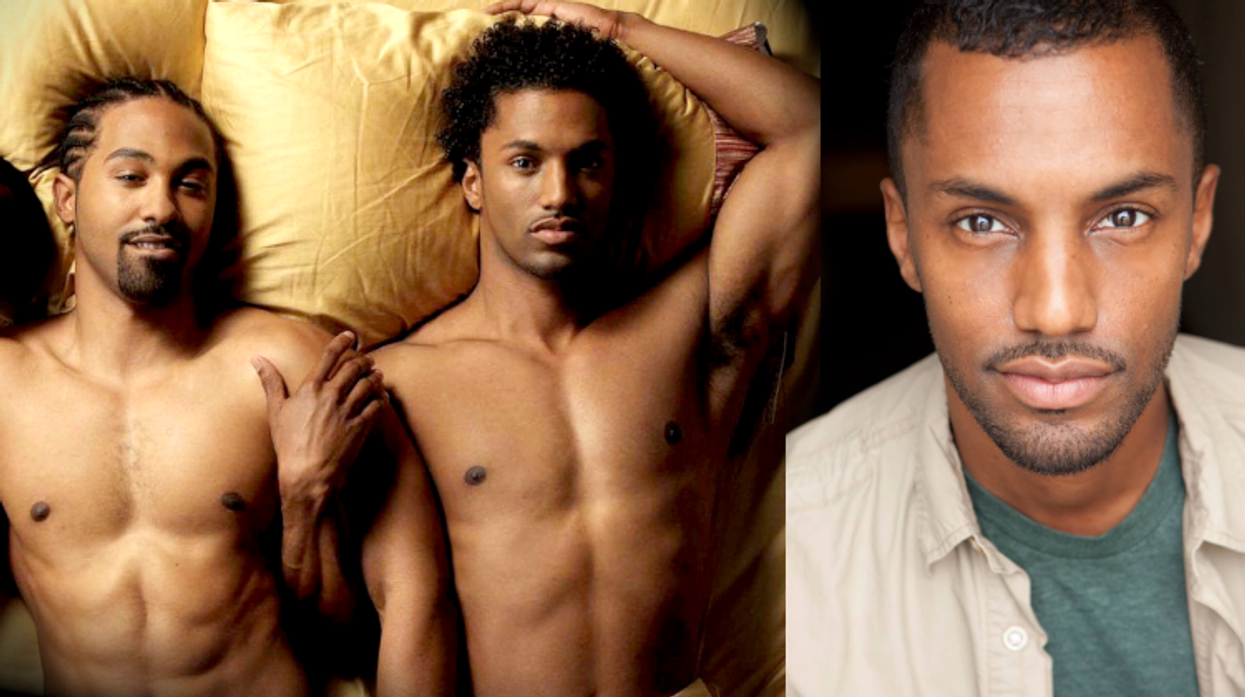
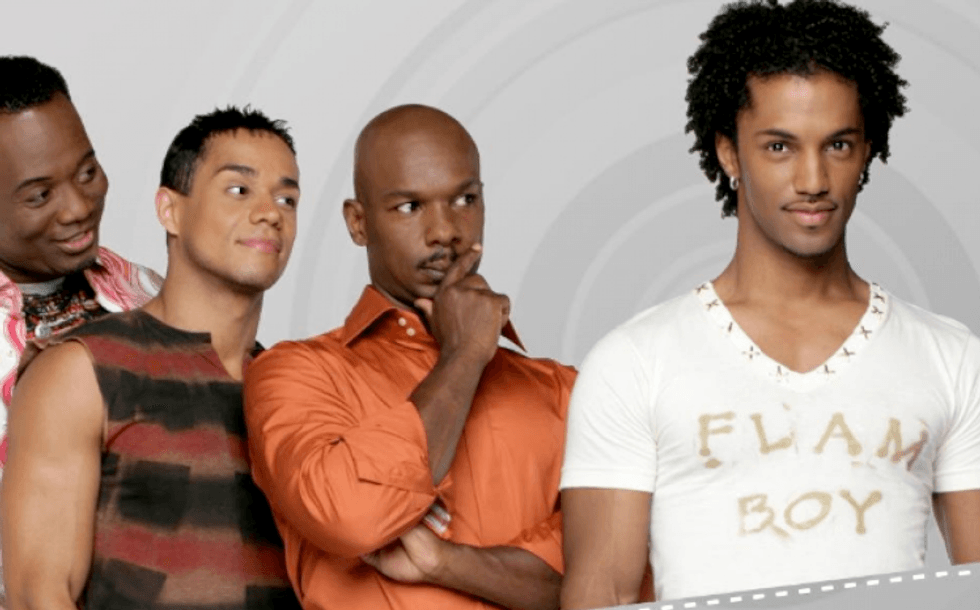
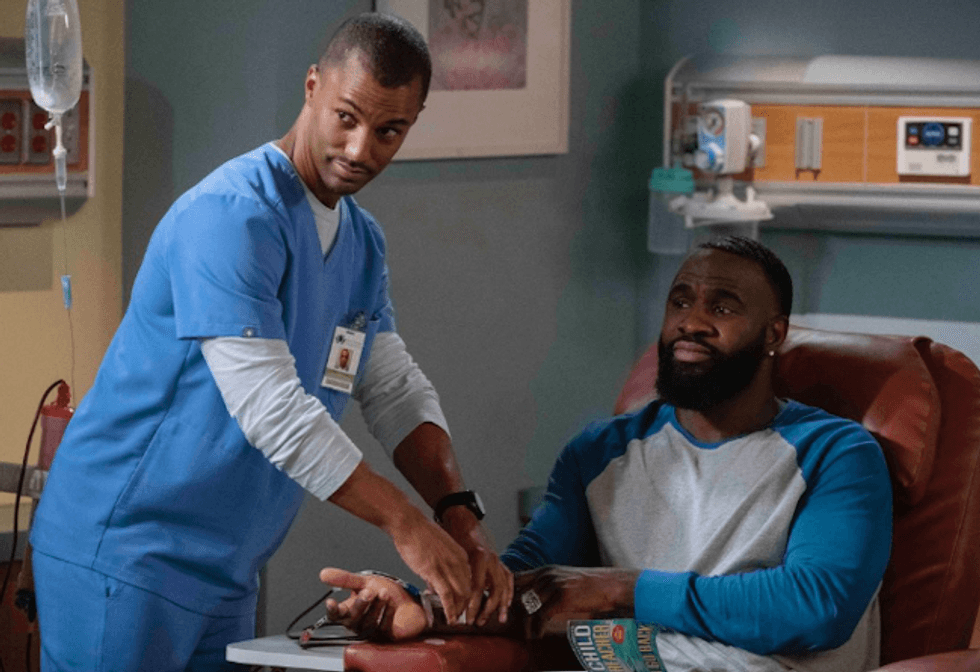




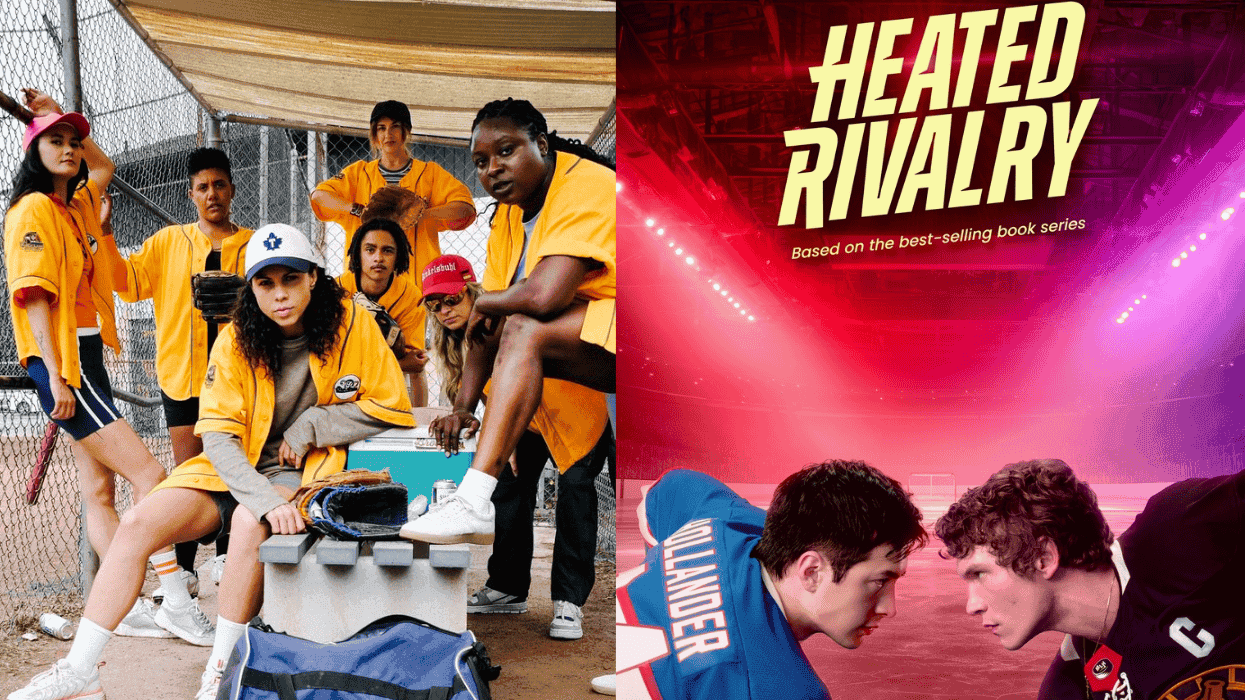



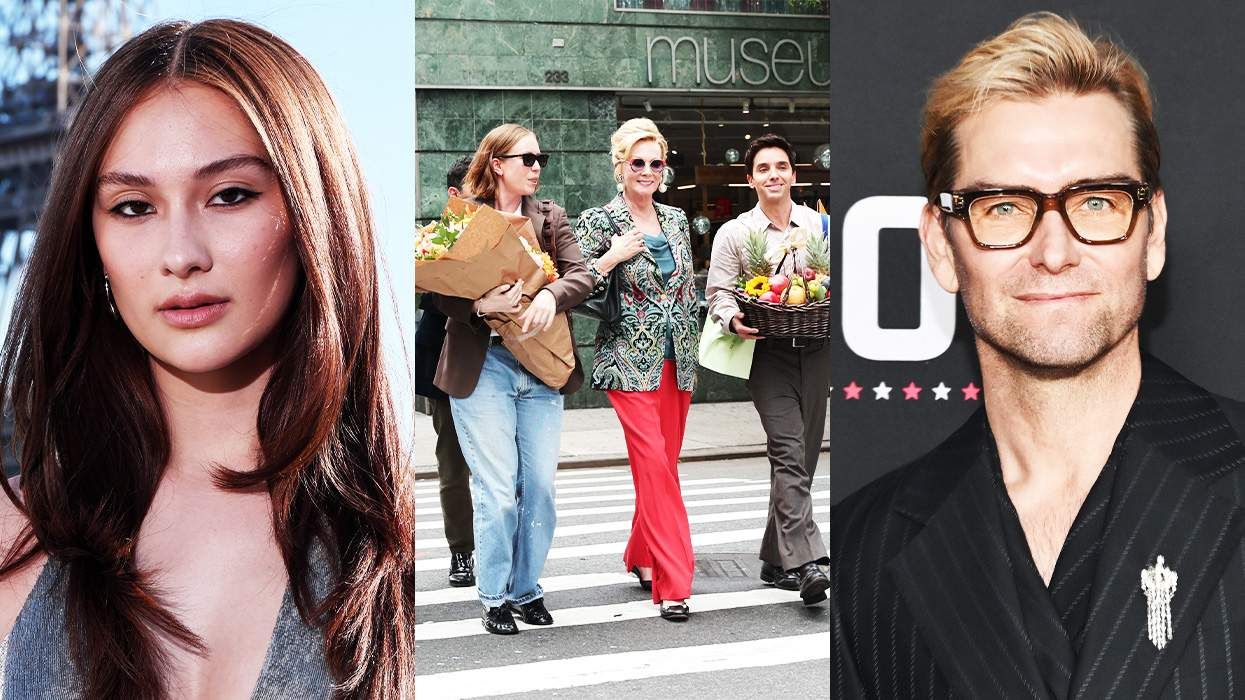





Charlie Kirk DID say stoning gay people was the 'perfect law' — and these other heinous quotes
These are some of his worst comments about LGBTQ+ people made by Charlie Kirk.